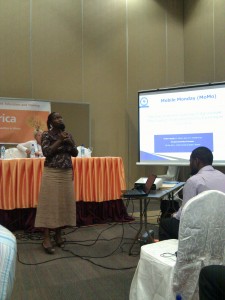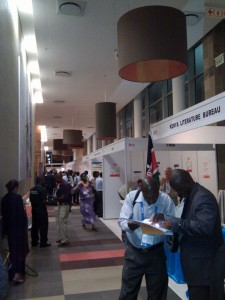
E-Learning Africa 2011 was held at Mlimani City in Dar es Salaam this week. The local Mobile Monday chapter was asked to organise a session on innovative uses of m-learning. The panelists for the session were varied and included Ms. Margareth Mushi from the Open University of Dar es Salaam (OUT), Prof. John Traxler from Wolverhampton University(UK) and Ritta Vanska from Nokia’s corporate social responsibility unit.
Ms. Mushi spoke about how OUT has been working with Sokoine University in Morogoro to provide poultry farming extension officers with educational content on their mobile phones. The officers access the content on their java-enabled phones using operator data connections. Extension officers have found the content empowering and thus been able to better assist poultry farmers with their work. The main challenge in scaling up this pilot project has been the cost prohibitive data charges incurred in downloading the content. Efforts to request operators to provide free access to the content haven’t been successful because it would require users to switch to a particular network.
Prof. Traxler gave a big picture overview on the state of the industry and he said that in the developed world most m-learning pilot projects haven’t scaled up beyond the pilot phase because grant funding hasn’t been available. He also went on to say that one of the reasons m-learning hasn’t really taken off so far because there haven’t been any case studies or reports that really show significant impact from these initiatives and thus corporations and governments haven’t joined supported the efforts.

Ritta Vanska described Nokia’s experiences in trying to establish a mobile maths learning system for students in South Africa. The system was based around a competitive game scenario with students solving maths problems to beat each other. Although the initiative was eventually very successful and has been expanded across the country Ms. Vanska described a whole slew of challenges that Nokia faced in implementing it. I won’t describe all of them but the repetitive theme was that their were too many entities involved in executing the project all the way from the ministry of education to parents of students and managing them was the biggest challenge.
The overall impression I got about the state of m-learning around the world is that projects have been hard to execute because of the numerous external parties involved in the ecosystem and the lack of sufficient funding. Technological challenges such as disparate standard have also not made it easy to make content accessible on all phones. The light at the end of the tunnel though is that internet data charges and the cost of phones with web browsers is continuously falling which will allow all web content to be easily accessible on one standard medium and at affordable rates.
More information about the panelists here.


Asante taha. The programs thus far tested out seem to be too complex. Why not start using mobile phones at a very basic, SMS-based level so no high charges are incurred and things start small? One example I can think of is using a texting framework between schools so students can compare short, precise results of fun experiments with a “sms-pal” (instead of penpal) across other school campuses.